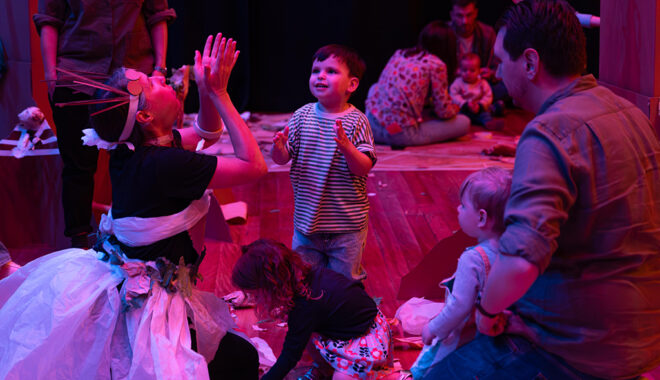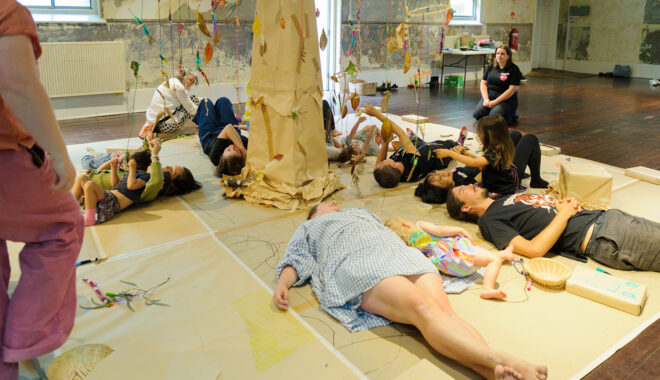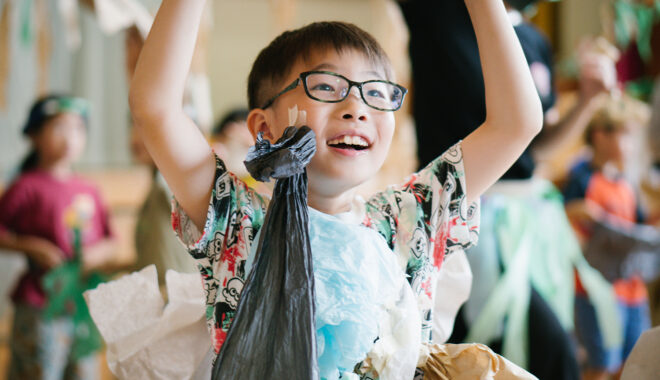8 Apr 2024 Sector & Advocacy
Nature Play Week 2024
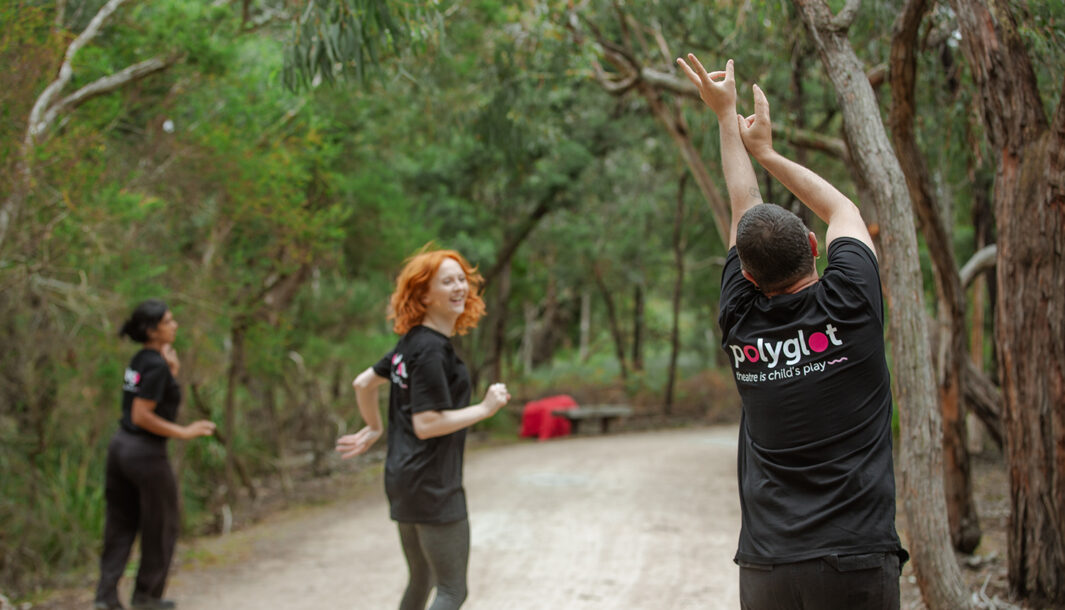
Nature Musings by Cat Sewell
I am energised by nature. I get the feeling my heart might burst from my chest; it gives me room to think and feel. I see smiles in nature. I see children kicking out their feet and spinning their arms, looking up, and looking down, and living in a more 360 degree way. It calms the nervous system.
I’m interested in creating art that is set in nature, that is connected to the natural world, and that places our human experience as part of that. It is a gift to give children and families time and space in an environment that offers stimulation, creativity and play in open-ended, equitable ways. Nature is always in creation. In making Forest, we are tapping into that, and following nature’s lead – creating something new, something that seems to grow from nothing. It is a very different environment to make theatre in, as opposed to being surrounded by materials that have already been so adapted and changed. It is inspiring to be learning from being somewhere that is in creation, not in stasis.
In nature you can take it in from afar and let it wash over you, but there’s always an invitation to go deeper – to look more closely, to listen more closely, to notice textures and reflect on how the micro and the macro parts of the world connect. And it feels good. Blue feels good. Green feels good. Running your fingers through sand, or along the smooth bark of a tree, or watching the movement of water, feels good.
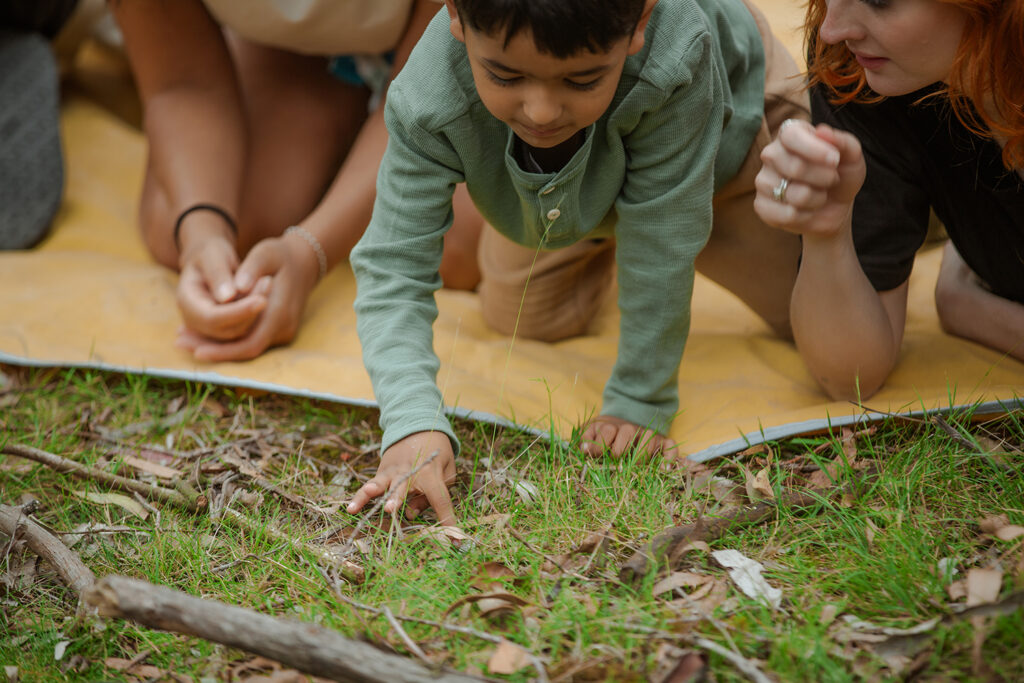
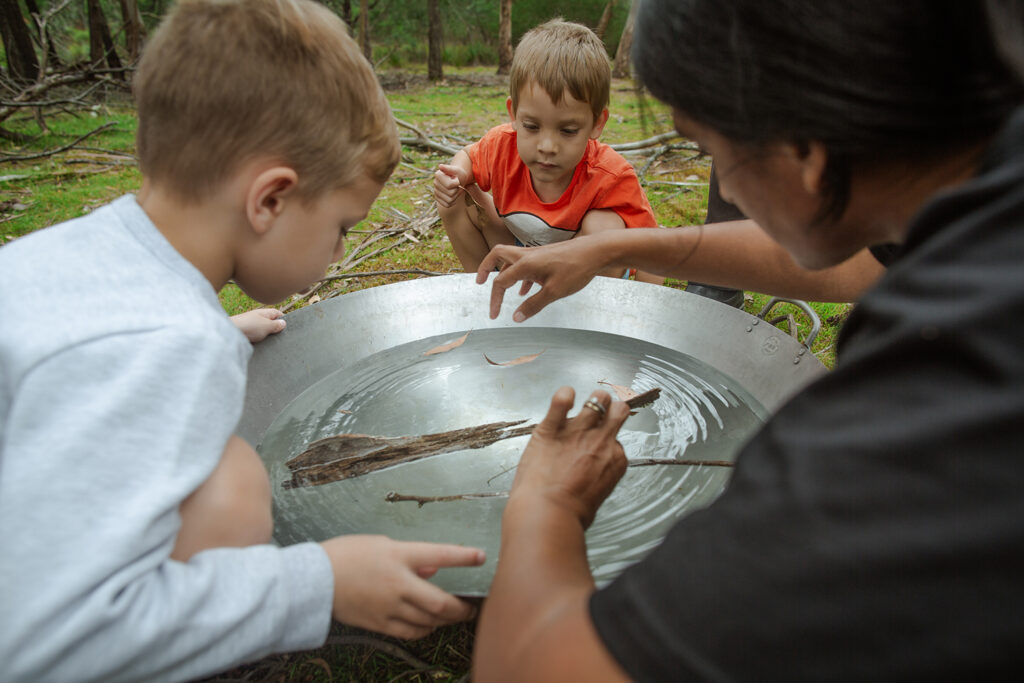
Forest. Photos: Claudia Sangiorgi Dalimore
Many children who grow up in urban areas experience barriers to accessing nature. The relationship that children innately have with nature needs to be fostered and elevated. We need to understand our connection to the natural world, and nurture it into the future, so that we can protect and heal our environment. But it also helps us right now, easing stress and increasing wellbeing. It allows us to slow down and take collective breath, to notice small moments of beauty, glimmers of hope that will also help shape the future.
Being outside, there’s just that little bit more room to come as you are: to move your body more, or to be a little bit louder, or to hide in a corner; there are different access points. And that’s the ultimate goal in my practice, and in everything we do at Polyglot; to always have lots of different ways to experience a creative work. It’s not about it always being comfortable, it’s about creating an environment where people feel safe enough to explore, and maybe head somewhere unexpected.
It is a real joy to watch children and families experience the forest in a different way, in a way they may not have before, and to learn about this space through an artistic lens. For them to be taken into fantasy and imagination and wonder and risk and trepidation and surprise, rather than just moving through getting from A to B, or only thinking about it scientifically. There is a moment in Forest where children introduce their adult to a tree, showing them where to put their hands and what to look at. It is great to provide moments where it’s the child who shows the adult how to interact with nature, giving them power and agency. I love seeing children lean in like that.
There’s a different sort of deep connection that happens through art and play and creativity. It forms on multiple levels, through multiple senses, all at once. I like to think that it sort of opens a crack, one that can stay open for that child, for that family, in their life outside of that work. The crack might help them see a new possibility. Maybe they notice the flight of a bug as it travels through the air, or how the sun glints through leaves, or they imagine a character that might reside under a log, or see textures in a tree branch and think how much it reminds them of an elephant’s trunk. Making an interactive, theatrical performance in nature helps put it in in context. Humans are good at creating connections through story, imagination and exploration.
For me, Forest is the ultimate triangulation of a good time, combining the worlds of play and creativity and nature. I’m happy to live in that triangle.
Nature Play Week (8-18 April 2024) is a Kids in Nature Network initiative. Learn more here: natureplayweek.org.au
In January, Polyglot Theatre delivered FLOAT, a series of free, drop-in workshops for children and families, commissioned by MPavilion as part of the MStudio commissioning program. Ahead of these, we were delighted to share MTALKS: Play and the Art of Nature. This was a panel discussion with Cat, and guests Jenny Anderson and Kathleen Gonzales, delving into the joys of engaging children and families in arts experiences that connect to nature and natural environments. You can listen to this on the MPavilion podcast, available on their website, SoundCloud or Spotify.
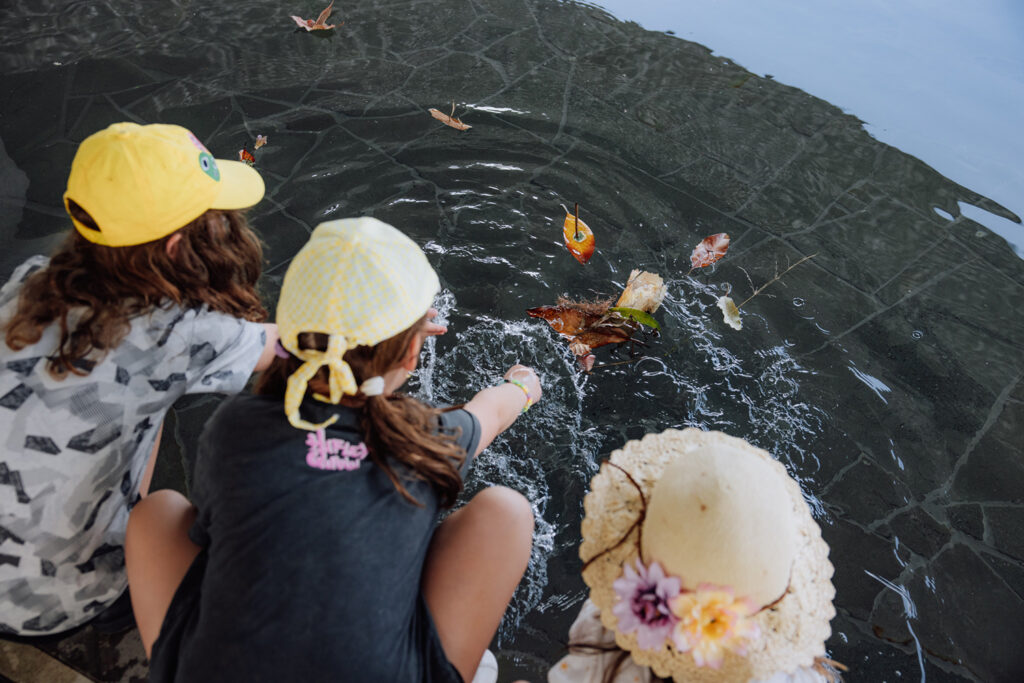
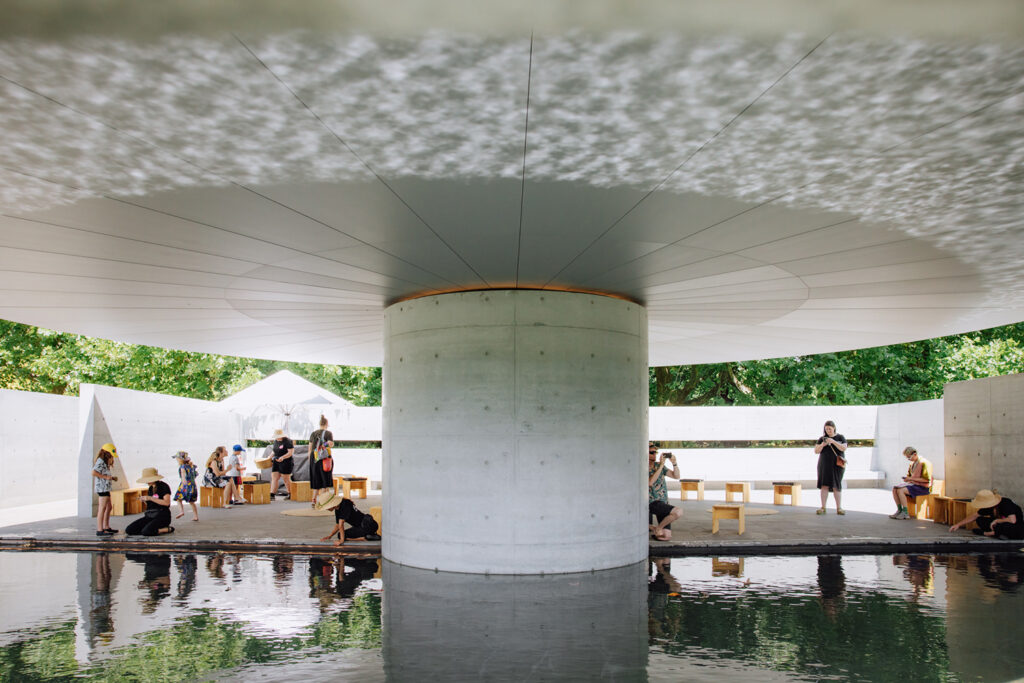
FLOAT. Photos: William Hamilton Coates, MPavilion



